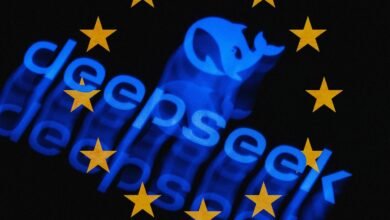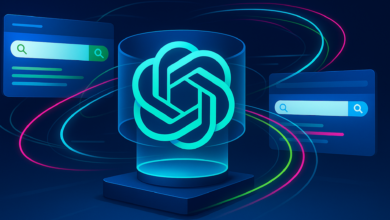Why AI Bots Now Show Ads—And How You Enabled Them

▼ Summary
– Most consumers are unwilling to pay for chatbot services, making advertising the primary monetization method for large language models (LLMs).
– Only 25% of generative AI users pay for subscriptions, with most willing to spend up to $20 monthly for features like search and image generation.
– OpenAI leads in paid Gen AI subscriptions but has fewer than 20 million paying users despite 600 million weekly active users, highlighting low adoption rates.
– Google dominates search with 4 billion users and $77 billion quarterly ad revenue, while OpenAI struggles with high infrastructure costs and an unprofitable ad-free model.
– OpenAI is pivoting toward advertising to monetize its large free user base, hiring ad-experienced leadership and planning a potential 2025 ad rollout.
The shift toward AI-powered advertising is gaining momentum as most users remain unwilling to pay for chatbot services. Recent research highlights that while generative AI tools are widely used, only a fraction of consumers are open to subscription models. This reality is pushing companies toward ad-based monetization strategies to sustain their costly AI infrastructures.
A Bloomberg Intelligence survey revealed that just 25% of generative AI users currently pay for premium features, with most unwilling to spend more than $20 monthly. The study, which polled 1,000 respondents across the U.S., Europe, and parts of Asia, found that younger demographics (18-34) dominate usage, while income levels varied significantly.
OpenAI leads in paid subscriptions but still struggles with low conversion rates. Despite boasting 600 million weekly active users, fewer than 20 million subscribe to its paid tiers, which range from $20 to $200 per month. In contrast, Google’s search engine generates $51 billion quarterly from ads alone, demonstrating the profitability of free, ad-supported models.
The challenge for AI companies lies in the high operational costs of running large language models. Unlike traditional search engines, which rely on cost-efficient ad-serving infrastructure, AI platforms require massive investments in data centers and high-performance GPUs. OpenAI, for instance, is projected to spend over $200 billion by 2030 on AI infrastructure, a financial burden that makes ad revenue increasingly attractive.
Despite initial reluctance, OpenAI is already pivoting toward advertising. The company recently hired Fidji Simo, former Instacart CEO, to spearhead its ad business, leveraging her experience in building a $1 billion annual ad revenue stream. Analysts predict a full-scale ad rollout could happen as early as late 2025.
Meanwhile, Google is capitalizing on AI’s impact on search behavior. Its new AI Mode, which replaces traditional search results with AI-generated summaries, has reduced click-through rates but increased advertisers’ cost-per-click. This shift makes each remaining click more valuable, reinforcing Google’s dominance in digital advertising.
Smaller players like Perplexity and Anthropic are also exploring monetization, though their strategies differ. Perplexity focuses on consumer search, while Anthropic targets enterprise APIs and coding tools. Meta’s recent standalone AI app launch adds another layer of competition, though its long-term traction remains uncertain.
While subscription models may evolve, possibly with lower entry points, experts believe premium bundles will become the norm. Google’s $249/month AI Ultra plan, which includes cloud storage and YouTube Premium, sets a high bar for competitors. OpenAI’s standalone $200 ChatGPT Pro may struggle to match this value proposition.
The AI industry is at a crossroads: advertising appears inevitable, but the balance between user experience and profitability remains delicate. As companies refine their monetization strategies, one thing is clear, free AI services won’t stay free forever.
(Source: ZDNET)





